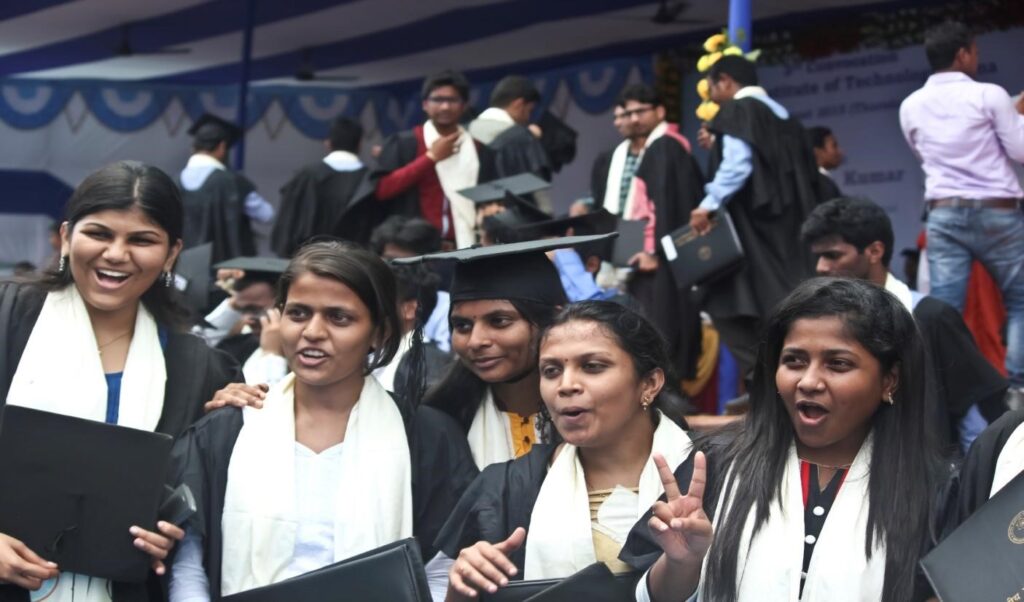Have you ever thought about why they tend to attach so much importance to good grades in India? It’s a rare student who doesn’t dread being academically unsuccessful and criticism such as unsuccessfulness entails. It’s the biggest source of pride and status for so many Indians that they can hardly imagine dealing with the consequences of having failed in an academic career.
When students fail, they are often ridiculed for being intellectually inept, emotionally blackmailed, beaten up, or driven to self-harm at worst. How did Indians get to this point where the incessant pressure and academic burden placed on students is almost unbearable?
How come that in the era of advanced educational technologies like online tutoring, self-instruction manuals, and writing enhancement software you can find at https://www.spellcheck.net/, people remain so willing to perpetuate emotionally and intellectually destructive stereotypes?
Table of Contents
Highly Competitive Education System

Source: pexels.com
The problem begins with how India’s education system is designed. After independence, the Indian government wanted to create a standardized system of education to eradicate illiteracy among other goals. So, all secondary schools had to work with the examination board.
As India opened up to the global market, more schools were opened including private ones. Because private schools could get away with charging really high fees and usually attracted students from higher economic backgrounds, the education industry really saw an immense boom and thus became much more competitive.
According to statistical data, in 2011, 25 % of all schools were private and accounted for 40 % of total student enrollment, which makes up almost half of all students. There are almost 1.5 million K-12 schools in India, each ranked by the average marks that their students get.
The higher are the marks that the students bring in, the more prestigious the school is. Meanwhile, the quality of public education substantially worsened. As a result, more and more students had to turn to coach classes and private tuitions, which will be discussed in the following section.
Private Tuition

Source: pinterest.com
According to the Hindustan Times, in 2016, more than 70 million students relied on private tuition to get the knowledge they required for their future professions. It’s not a secret that private tutors can charge anywhere between 1,000 and 4,000 rupees per hour per student.
In other words, the Indian private education system became a really profitable business worth about $100 billion. Needless to say, for many Indian families, this can be a huge financial strain that adds to the pressure the students are already facing.
Students need to give their parents crusading to provide their offspring with decent education a return on their investment. They realize that they have to be class toppers to land the best job possible. They just have to do well to live up to the expectations and hope their parents pin on them.
And to do that, young learners have to get into a good college, which leads us to the problem of high-stakes testing.
High-Stakes Testing

Source: pinterest.com
Being admitted to a prestigious college in India can be a cutthroat undertaking, especially under the conditions of intense competition. For instance, Delhi University’s Sri Ram College of Commerce has 400 slots for annual admission with the number of applicants exceeding 28,000.
If you do some simple arithmetic, you’ll see it is a 2 % acceptance rate, which is lower than Harvard’s. As a result, the entire focus of secondary education became excelling at the tests. The tests themselves emphasize memory over-analysis. This has led to the fact that more students and schools started relying on cramming or the so-called rote learning, which eliminates the slightest possibility of making a mistake on tests.
The better you do on such tests, the more likely you are to get into such a lucrative business as technology, engineering, medicine, science, much more.
Science is Tantamount to Success

Source: pinterest.com
You probably know that STEM is highly valued and very popular with so many people in India. As India industrialized after independence, there was a huge demand for qualified engineers to help the country restore the industrial and economic equilibrium.
Two decades into the twenty-first century, it becomes clear that India doesn’t experience the lack of engineering degrees anymore, but the traditions still persist. So, a vast majority of students are still pursuing science majors and are stereotypically viewed as more intelligent and promising that their counterparts who, say, want to become auto mechanics or electricians.
Moreover, the return on investment also seems a lot more promising: higher-paying jobs, higher social status, and sometimes even an easier visa pathway if you decide to settle abroad.
So, it makes sense why so many students are pressured into studying science even if they lack interest or passion for this particular field. But the question is ‘Does all this pressure on students worth it?’ Does it guarantee a stable job, economic prosperity, and enviable social status?
Desire to Break Free from Poverty

Source: pinterest.com
For people from low-income communities or lower castes, education can be a viable way to break free from destitution. And understandably, a lot rides on being academically successful. Slews of young learners are conditioned to believe that their whole life success is contingent on the grades they get in school and that good grades equal high profits and social recognition.
The fear of failure runs too deep for students to realize that in fact, their grades don’t necessarily reflect their values as persons. So, they tend to follow the vicious circle and contribute to perpetuating stereotypes. Even students who excel in exams can struggle to fit in once they graduate from high school.
Final Thoughts

Source: pinterest.com
It’s critical for all those concerned to realize that with the job market constantly evolving, there’s no magic degree that can surely guarantee coveted success or a lucrative career. Many progressive educators and mental health specialists encourage parents to evolve and adapt to a new way of thinking. School should inspire students to think of new ideas, analyze, critically evaluate information, and use it flexibly as opposed to cramming.
There are plenty more attitudes and skills that are worth being brought up in students since they will be far more useful in the long run. While efforts are being made, the stigma over low grades still persists. Hopefully, over time, Indians will manage to unlearn the dangerous beliefs and reduce the role of the mechanical routine in learning to the minimum.

